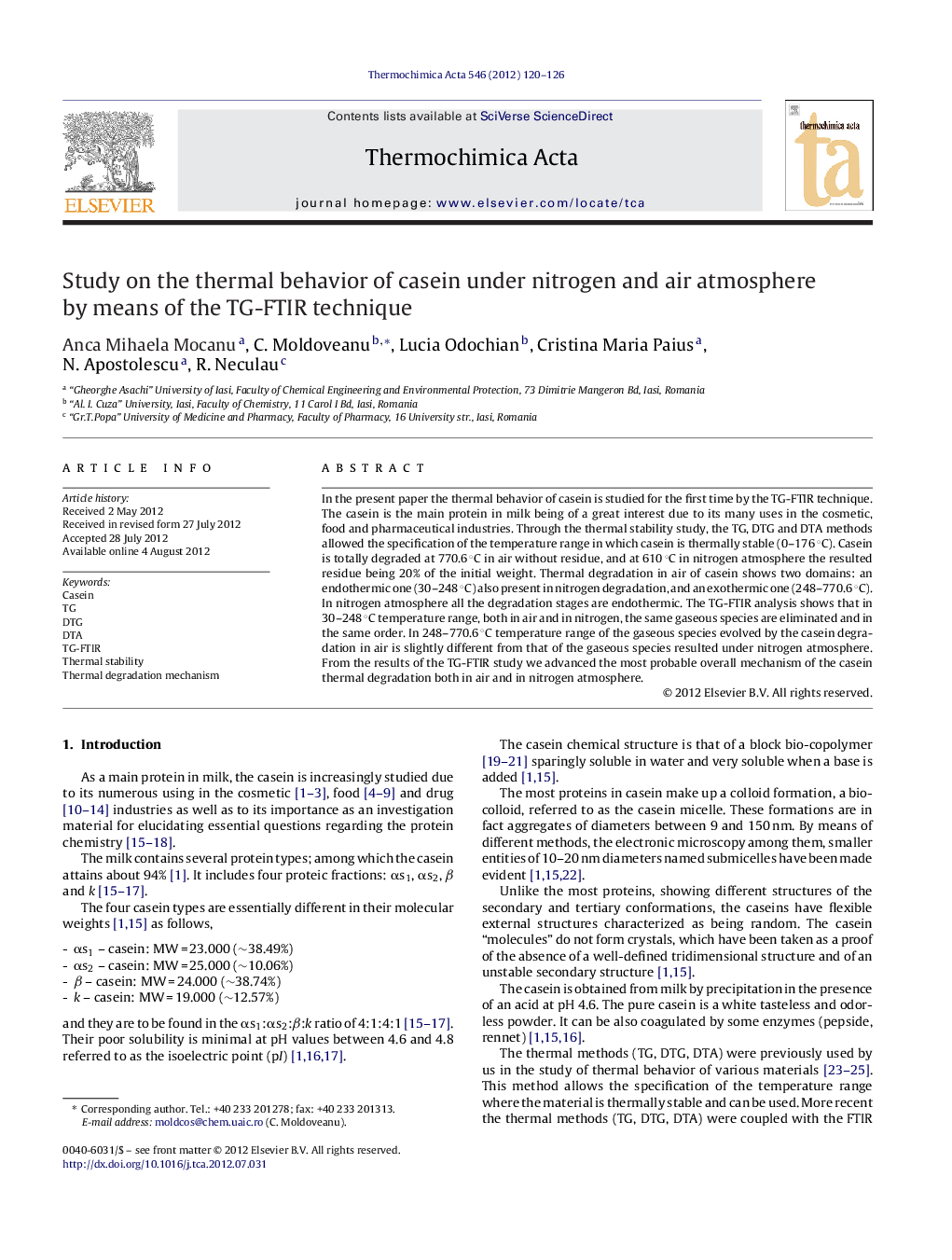| Article ID | Journal | Published Year | Pages | File Type |
|---|---|---|---|---|
| 674081 | Thermochimica Acta | 2012 | 7 Pages |
In the present paper the thermal behavior of casein is studied for the first time by the TG-FTIR technique. The casein is the main protein in milk being of a great interest due to its many uses in the cosmetic, food and pharmaceutical industries. Through the thermal stability study, the TG, DTG and DTA methods allowed the specification of the temperature range in which casein is thermally stable (0–176 °C). Casein is totally degraded at 770.6 °C in air without residue, and at 610 °C in nitrogen atmosphere the resulted residue being 20% of the initial weight. Thermal degradation in air of casein shows two domains: an endothermic one (30–248 °C) also present in nitrogen degradation, and an exothermic one (248–770.6 °C). In nitrogen atmosphere all the degradation stages are endothermic. The TG-FTIR analysis shows that in 30–248 °C temperature range, both in air and in nitrogen, the same gaseous species are eliminated and in the same order. In 248–770.6 °C temperature range of the gaseous species evolved by the casein degradation in air is slightly different from that of the gaseous species resulted under nitrogen atmosphere. From the results of the TG-FTIR study we advanced the most probable overall mechanism of the casein thermal degradation both in air and in nitrogen atmosphere.
► Thermal behavior of casein by TG-FTIR. ► Similar thermal degradation of casein on temperatures lower than 426 °C both in air and in nitrogen atmosphere. ► The thermal stability of casein does not depend on the nature of the degradation atmosphere. ► The most probable mechanism for the thermal degradation of casein is advanced.
